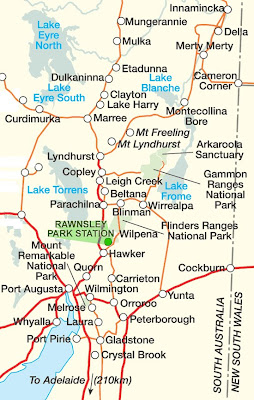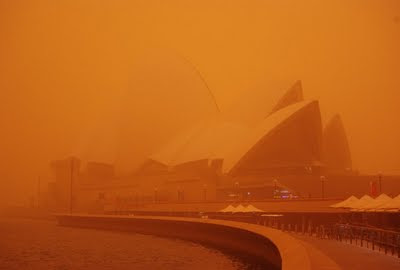
“At this moment when there is no experience of revolution in the 21st century, when there is no advanced proletarian revolutionary movement in the world, when this country is encircled and governed by Indian expansionism, at this moment against imperialism and expansionism, we have come to the decision that we have to accomplish insurrection. This is the important outcome of this meeting.”
WPRM: Can you introduce yourself please?
Com. Binod: My name is Comrade Binod. I am a Central Committee member and secretary of the state council for Mahakali state, which comprises seven districts in the far west of Nepal.
WPRM: Can you tell us about the recent Central Committee meeting and its implications for the coming weeks and months?
Com. Binod: In the life of the party, this Central Committee meeting has been unusual from the point of view of ideology and debate. We have received an opportunity, and we are proud that this meeting has been very unusual because it has taken place amid the deep curiosity of the proletariat in Nepal as well as the world over. This curiosity is positive. At the same time, the imperialists and reactionaries also have an expectation. Amid this we have carried out a great meeting, and made decisions which have made us proud to talk about this meeting.
WPRM: And what are these decisions?
Com. Binod: At this moment when there is no experience of revolution in the 21st century, when there is no advanced proletarian revolutionary movement in the world, when this country is encircled and governed by Indian expansionism, at this moment against imperialism and expansionism, we have come to the decision that we have to accomplish insurrection. This is the important outcome of this meeting.
WPRM: So insurrection can be carried out in this situation?
Com. Binod: Certainly there is a negative situation; an unfavourable situation for revolutionaries. But there is no other mightier force than the people, and the Nepalese people are so mighty. Because of this, these people can bring us success. We have the ideology of Marxism-Leninism-Maoism (MLM) and we have a good and clear organisational setup, we have a team of leaders who want to fight, we have a class, a nation and a region which has been heavily suppressed. We have the commitment to win victory, the commitment to synthesise our understanding to a new height.

Certainly there are serious obstacles put in front of the Nepali people by the Americans, but we have commitment, courage and the confidence to overcome those obstacles. What we see now within the UML, a revisionist party, is that their cadres have lost confidence with their leaders and their line. At the same time within Nepali Congress, a reactionary party, many cadres have also lost confidence with their leaders and their line. The monarchists have already lost their leadership and also the Terai nationalist forces have seen their leadership divided.
We have a glorious history. You are British, and we have a glorious history of Ghorkali forces that defeated the British Army in many places. As descendants of that, our people are equipped with the weapons of MLM and the blood that is flowing in Nepal is now working for the purpose of socialism and communism.
When we initiated the People’s War we were only 70 or 75 people. Even at that time we had the courage and confidence that we could conquer the world, that the revolutionary forces, the proletariat, could conquer the world. We had some fear about whether our party was going to be destroyed, or whether, like UML, it would become a revisionist party, whether it would vacillate on the revolutionary path. But through the process of great debate we have come to a higher level of understanding and we see that the victory of the proletariat is inevitable.
We have a deep feeling that today no-one can make this party a reactionary or vacillating party. We are not only capable and experienced in leading People’s War but also in leading line struggle and taking the party to a higher level of debate. That has been proved in this meeting.
WPRM: How does the UCPN(M) feel about the current UML led coalition government?
Com. Binod: Our senior leader Baburam Bhattarai said that the Nepali people have given the responsibility of being a driver to the Maoists, as a conductor to the Nepali Congress and as a caretaker to the UML. But now the caretaker has taken the place of the driver and the driver is in place of the caretaker.
In Nepalese tradition there is a fable about Dakchyaprajapati, who has the body of a human being and the head of a goat, which is set in a wrong direction, pointing backwards. This government is like that. Objectively we understand this government like that, but politically this government is designed by Nepali Congress. In the objective reality of Nepal, this government has been constructed in order to destroy the Nepali revolution, the UCPN(M) and the aspirations of the Nepali people. But this government is like a scarecrow. In the beginning the birds think this might be a man. Then when the bird realises this is not a man then it sits on the head of the scarecrow. At the moment this government is like a scarecrow. The Nepali people understand that it is set up by Indian expansionism and they are not afraid of this. So it is not so important to talk about this government, but as far as MK Nepal (the PM) is concerned, he has time and again over the last few years prepared his trousers and his daura-suruwal (a type of Nepali dress). He has been prepared many times but had never before had this opportunity. Now he has got his opportunity. But this time there is a big possibility that his chair will fall down before his clothes get dirty.
WPRM: Now Prachanda is talking about a new government being formed, how will this come about?
Com. Binod: This new government will assure civilian supremacy and national sovereignty, giving immediate relief to the people and with the purpose of insurrection. We have carried out many preparations in order to convince the international community that it is necessary to have power, in order to convince Nepalese society this government will be formed. Certainly, this government will be formed to organise insurrection, having convinced the international community that we want a new society, and to convince the revolutionary forces that we want to make revolution, to convince the people that we are going towards a new society, to convince anti-imperialist and anti-expansionist forces that we are taking this society forwards.
WPRM: How exactly will this new government come into being?
Com. Binod: The main basis is the Nepalese people. It will come about through the struggle of the Nepalese people, through strong intervention against the parliament and the organisation of a United Front amongst the nationalist and democratic forces within parliament and involving all sections of people and civil society.
We understand that one section of UML is not happy with this government. The main section of the leadership is also not happy with this government. The Madhesi party has split and the Madhesi people are also not happy with this government. Even the honest people within Nepali Congress believe that without the Maoists the new constitution cannot be written. The people who are in favour of civilian supremacy and national sovereignty are also not happy with this government. The majority within this parliament agrees on the question that the step of the president (to overrule then-PM Prachanda’s decision to sack General Katuwal) is unconstitutional and unjust.
These parliamentary forces are afraid even to debate this issue, this motion on the step of the president. Therefore this government is defunct because the practice has been shown that the parties are split and the parliamentary members are protesting. This kind of government cannot be accepted for a long time. It is defunct and is losing morality, confidence and honesty. It is set up against the people and so cannot sustain itself for long time.
WPRM: The deadline for writing the constitution is in nine months, is it possible to write it in time and what will happen if it is not?
Com. Binod: The constitution would certainly have been written if there was no struggle between opposite classes. But this struggle is happening as a political struggle. The other classes would like to write a constitution according to their class interests, we would like to write a constitution according to our class interests. The possibility of the constitution being written is low. At that time there is the possibility that a new class situation might emerge. We are taking the issue very seriously in order to meet the challenges that might come up in those conditions. In this situation we are trying to organise the masses for rebellion, through insurrection of the masses.
The reactionaries didn’t want Constituent Assembly elections, but on the backs of the masses they were obliged to hold them. They didn’t want a republic, but on the back of the people the republic was established. Those elements who once put a bounty on our heads and propagated that we are terrorists have now been forced to recognise us as a political party because of the force of the people, as has the US imperialist force who also called us terrorists.
No such event has before taken place in history, where ‘terrorists’ have been recognised like this. These kind of unimaginable things have happened on the back of the force of the masses. We believe that on the back of the force of the masses, the constitution can also be written, a constitution favourable to the masses, but the possibility of that kind of constitution being written is very low at the moment.
WPRM: Many Maoists around the world are concerned that the party has given up the armed struggle, the PLA are in cantonments and the party now has the plan to merge the two armies together, the PLA and the Nepali Army (NA). What is the role of the PLA now in the struggle for revolution in Nepal?
Com. Binod: The PLA is under the control of UNMIN and a special team, the Army Integration Committee. But practically the PLA is under the control of the Maoist party. Even though the weapons are in containers, the key of those containers is in our hands. We talked to the lower members of the NA and we found that the behaviour within their army is like from the 12th or 14th centuries, feudal behaviour is being carried out. The leadership of the NA is from a very backward class, from feudal leadership. If we do things carefully then there is a big possibility that the bitterness between officers and soldiers could be maximised. Obviously as long as the NA is around, insurrection or victory cannot be achieved. Hence, the question of integration is not that the PLA is being diluted into the NA. The NA should be diluted into the PLA. The meaning of the policy of army integration is not in the dissolution of the PLA but in the dissolution of the NA, to transform the NA and turn it into a PLA. That is why Nepali Congress and UML are always afraid of army integration.
WPRM: Mao said that after 1949 the dangers of sugar-coated bullets are more dangerous than the real bullets from the war before. How does the UCPN(M) understand this?
Com. Binod: Certainly this situation is grave, but it is not out of our hands and the situation can be made positive. Why has the situation developed in the world where millions of people worked to establish a socialist state and then again the same people came to power and later removed that state away. Why is that? Why do the same people who were once deeply respected reach the point of denouncing the state? There are still certain citizens who fought for Marxism who are now really afraid of Marxism. While we were talking to youth from Eastern Europe, youth working for human rights organisations, I talked to them and asked why there is no attraction towards Marxism among the masses of Eastern European countries.
Why do British people, where Marx said the first revolution would take place, still support the rejected parliamentary system? Why was the Chinese revolution demolished very easily after the death of Mao Zedong? We have to answer these crucial questions standing on the unprecedented history of the 21st century.
We feel we can meet the many challenges put forward in the present world. We will continue developing our understanding, our theory, having in the present given answer to these questions; these crucial questions. Based on dialectical materialism and based on democratic centralism, based on safeguarding participation in state power and control over state power, we can accomplish and meet the challenges of state power and control. Communists believe that the stability of capitalism is in motion. We believe that those who are most scientific are Marxist-Leninist-Maoists. But to some they look dogmatic and unscientific. Those who are most reactionary are capitalist-imperialists, which to them looks more dynamic and more forward-moving. The crucial question is why it looks like that. We have to answer this question.
WPRM: The UCPN(M) has developed a theory of elections taking place after New Democratic Revolution and during the stage of socialism. Can you give us your thoughts about this?
Com. Binod: Based on the experiences of Soviet Russia and China, we have understood that the economic and social rights of the masses are not only important, but the political rights of the masses, the personal liberty of the individual, are also very important. With the participation of the masses in state power, state power can go autocratic; state power can become another type. Certainly the dictatorship of the proletariat has to be established and systematised. While we are systematising the dictatorship of the proletariat we should not be cut off from the relationship with the masses. So the dictatorship of the proletariat should be approved directly by the masses.
This does not include pro-feudal, pro-imperialist, pro-expansionist forces, or comprador bureaucrats. It does not include anti-feudal ideologies. Not from those kinds of people, but from people that are really oppressed, those who, if they lose state power, will lose everything. We understand that socialism is an exercise of political ability of the individual to safeguard the dictatorship of the proletariat. That kind of society is, we believe, socialist society. Leninist socialism as defined in the period of Stalin contained something wrong somewhere, so we believe and we hope that we can correct this practice.
The control, the observation and the intervention of the masses against the state, has to be guaranteed. In one certain sphere, our correct leadership, our correct party line, cannot mean a direct corridor to revolution. The whole thing has to be tested time and again. Then the instrument of the state is the people, and the people must have the right to test it. That is our definition of socialism as we understand it.
 (Map, above, shows Port Augusta at the top of the gulf, and both Leigh Creek and Copley sandwiched between Lakes Torrens and Frome)
(Map, above, shows Port Augusta at the top of the gulf, and both Leigh Creek and Copley sandwiched between Lakes Torrens and Frome)


 An interesting aside to the power plant protest was the deliberate lie put out to the media and to Climate Camp organisers that Flinders Power would agree not to run the Leigh Creek coal train for the duration of the climate camp at Port Augusta. The coal train is up to 3 kilometres long and is said to be the longest in the world.
An interesting aside to the power plant protest was the deliberate lie put out to the media and to Climate Camp organisers that Flinders Power would agree not to run the Leigh Creek coal train for the duration of the climate camp at Port Augusta. The coal train is up to 3 kilometres long and is said to be the longest in the world.







 The Baltic Dry Index plunged 93% between June 2008 and January 2009 and has made two attempts at recovery, only to slip back each time. As an honest indicator of activity in the shipping world, it provides no material signs of global economic recovery.
The Baltic Dry Index plunged 93% between June 2008 and January 2009 and has made two attempts at recovery, only to slip back each time. As an honest indicator of activity in the shipping world, it provides no material signs of global economic recovery.









 Hillsborough Court, Mid Levels, Hong Kong Island, HKD 27-42 per square foot
Hillsborough Court, Mid Levels, Hong Kong Island, HKD 27-42 per square foot Between April and June this year, the Society for Community Organisation interviewed 267 residents who live in "cage houses" and boarded rooms in the Shum Shui Po, Tai Kok Tsui, Yau Tsim Mong and To Kwa Wan districts of China.
Between April and June this year, the Society for Community Organisation interviewed 267 residents who live in "cage houses" and boarded rooms in the Shum Shui Po, Tai Kok Tsui, Yau Tsim Mong and To Kwa Wan districts of China. 

